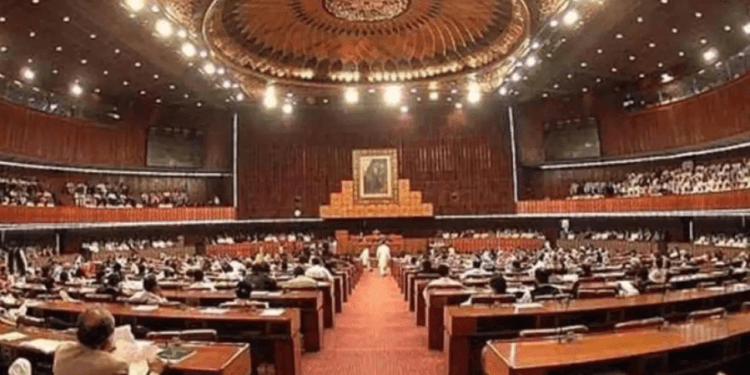A critical session of the Parliamentary Committee on National Security (PCNS) commenced today in Pakistan’s Parliament House under stringent security measures, bringing together the country’s top political and military leadership. The meeting, called by National Assembly Speaker Sardar Ayaz Sadiq on the advice of Prime Minister Shehbaz Sharif, is being headlined by a comprehensive briefing from Chief of Army Staff (COAS) General Asim Munir and his team.
The high-stakes huddle includes key figures such as Punjab Chief Minister Maryam Nawaz, Sindh Chief Minister Murad Ali Shah, Balochistan Chief Minister Sarfraz Bugti, and Khyber-Pakhtunkhwa Chief Minister Ali Amin Gandapur, who stepped in to represent his province amid a notable absence of Pakistan Tehreek-e-Insaf (PTI) lawmakers. Governors and Inspectors General of Police (IGPs) from all four provinces are also present, underscoring the gravity of the discussions. However, Balochistan National Party (BNP) chief Sardar Akhtar Mengal, despite being invited, opted not to attend. National Security Committee
The session follows a dramatic shift in the opposition’s stance. PTI, which had initially signaled its intent to participate in the deliberations, reversed its decision late Monday night. The party tied its attendance to a potential meeting with its incarcerated founder, Imran Khan. Speaking at a press conference in Peshawar, PTI Information Secretary Sheikh Waqas Akram emphasized the party’s concerns over rising terrorism in Khyber-Pakhtunkhwa (K-P). “The police are on the frontlines battling these attacks,” Akram noted, adding that any federal plan for a military operation against terrorists must first be debated in parliament. “Unity between the nation, government, and institutions is essential to defeat terrorism. Without public backing, PTI will not support any operation,” he warned.
The meeting’s urgency stems from last week’s brazen assault by the banned Balochistan Liberation Army (BLA) in Bolan district. Militants bombed railway tracks, derailing a train and taking over 440 passengers hostage in a tense, day-long siege in a rugged mountain pass. The military’s swift response neutralized 33 attackers and secured the hostages’ release, but not without a heavy toll: 26 passengers and four security personnel lost their lives in the ordeal.
Today’s briefing is expected to focus on the fallout from the Bolan attack and broader counterterrorism strategies, as the government seeks to rally political consensus amid escalating threats. With provincial leaders and security officials in attendance, the session marks a pivotal moment for Pakistan’s fight against militancy—and a test of its fractured political unity.

















































